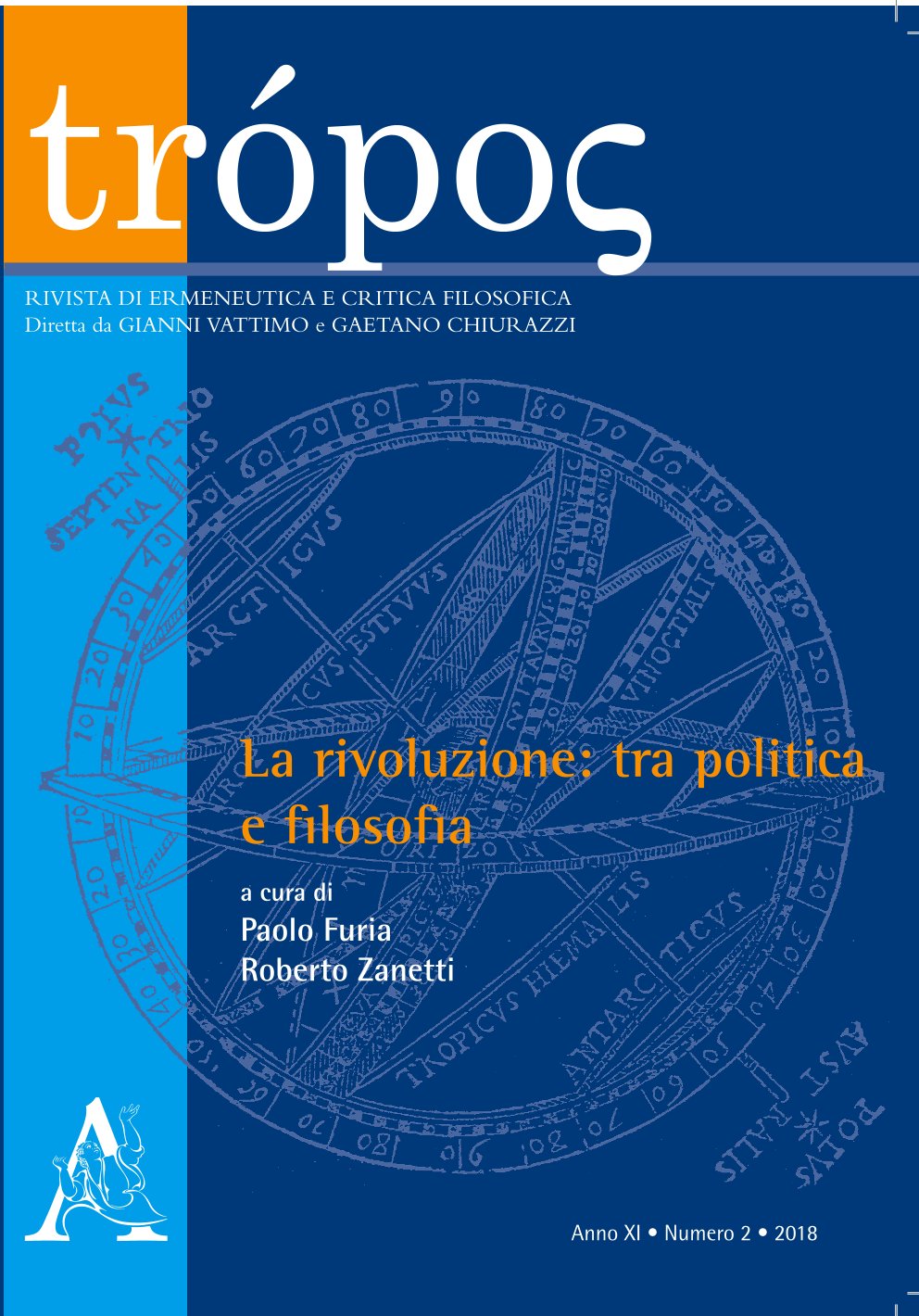Politiche rivoluzionarie e gnosticismo
Uno sguardo filosofico–politico
DOI:
https://doi.org/10.13135/2036-542X/8132Parole chiave:
Gnosticism, Revolution, Voegelin, Political Radicalism, Self–RedemptionAbstract
Revolutionary Gnosticism is a religious–philosophical category introduced in the academic debate by the philosopher Eric Voegelin (1901–1985). Starting from his important work, several philosophers and sociologists have adopted Gnosticism as a useful explanatory notion to frame and define numerous modern and contemporary political and cultural movements. The immanentization of the eschaton, which is a renowned Voegelian expression, intimately defines the politico–cultural project of revolutionary Gnosticism. The destruction of the past for the creation of a new world, the last aeon, demarcates the vision of history of revolutionary Gnosticism. Hence, according to a similar Weltanschauung, man replaces God, giving birth to «the idea of a transfiguration of mankind through a process of auto–redemption (grace replaced by revolution)» (Augusto Del Noce). The paper aims to investigate in broad terms the vast time span in which the concept of revolutionary Gnosticism has taken shape, from ancient Gnosis to Late Middle Ages, through seventeenth century Puritanism and Jacobinism, until twentieth–century totalitarianisms, eventually suggesting further lines of research. The present study intends to suggest a new interpretation for politico–revolutionary phenomena that have emerged in the whole West and in all epochs, with the purpose of finding a recurrent pattern that reflects one of the most disruptive intellectual engine for radical politics.



